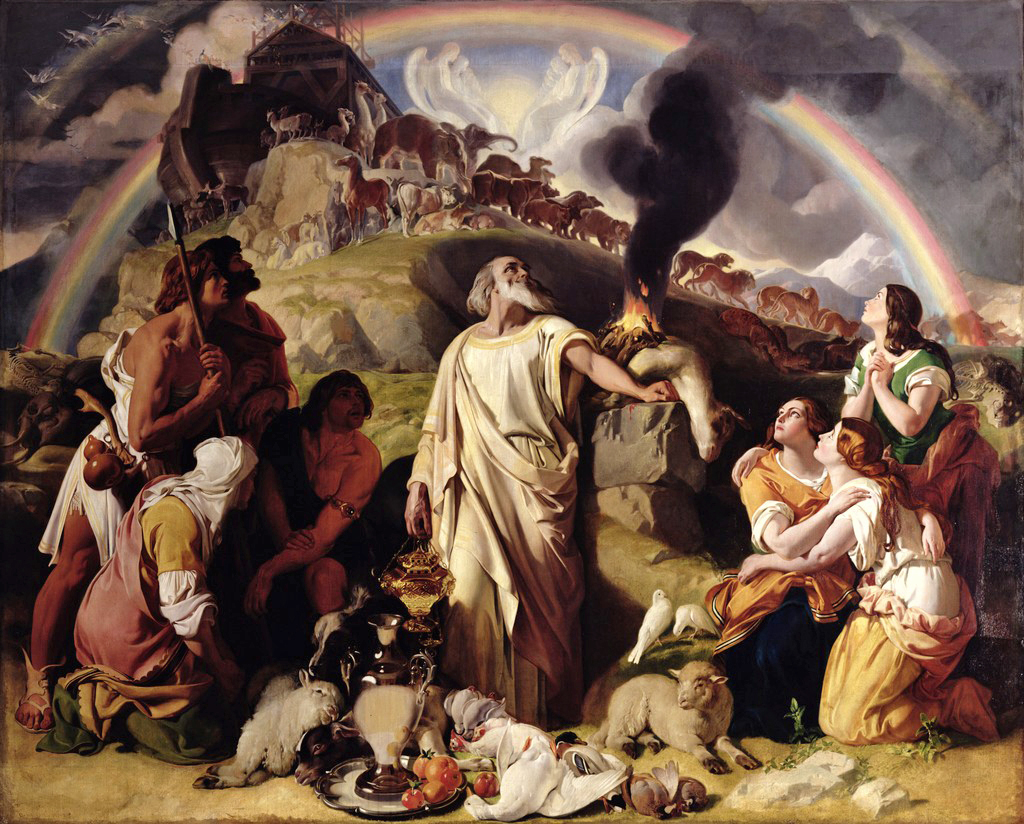Category: Leviticus
-

Translating puns
…an offering made by fire, of a sweet savour unto the LORD. Lev 1:9 This phrase “sweet savour” shows up repeatedly in the first several chapters of Leviticus, variously translated as “sweet aroma”, “pleasing aroma”, “soothing aroma”, “pleasing odor”, “sweet fragrance”, etc. In the Hebrew, it is reach nichoach (pronounced rey’-akh nee-kho’-akh—the kh is like the ch in […]
-
Dying You Shall Die
A question arises: is the death that follows the eating of the fruit of the Tree of the Knowledge of Good and Evil a penalty? The language used in the law—he shall surely be put to death, or the like—is not used here. The same emphatic verb doubling is used but the form of the […]
-
The Tree of the Knowledge of Good and Evil
One fatal tree there stands, of knowledge called,Forbidden them to taste: Knowledge forbiddenSuspicious, reasonless. Why should their LordEnvy them that? Can it be sin to know?Can it be death? Paradise Lost, Book IV Adam was given only one rule or commandment regarding food: he may eat fruit of any of the trees of the garden, […]
-
So All Will Know
Leviticus 19 includes the phrase that Jesus quotes as the second great commandment, “Love your neighbor as yourself.” God gives examples of what this means, anticipating the pharisaical question, “Who is my neighbor?” He includes the poor, the sojourner, the hired worker, the deaf, the blind, the great, the one living near you, and any […]
-
Devoted to Destruction
When Jericho falls, the city is devoted to destruction. It is a whole burnt offering. The entire city is put to the sword and burned with fire as an offering to Yahweh. This is not something that is handled by a soldier or regular citizen. An offering could not be burned with fire lit by […]
-
Blood Covering
Leviticus 4 lays out the ritual of the sin offering, which deals with “unintentional” transgressions – the sin of wandering or being led astray. This is not the high-handed sin of open rebellion and refusal to repent. In this offering, the primary element is the blood, which covers the sin of the people. It’s important […]
-
No one answered
Ahab, king of the northern kingdom of Israel, had married Jezebel, a Canaanite sorceress and daughter of Ethbaal king of the Sidonians. Together, they sought to restore Canaanite Baal worship in the land of Israel. Ahab built a temple and an altar to Baal and Jezebel killed the prophets of Yahweh. This is a great […]
-
Into the fire
Leviticus 1 deals with the `olah or ascension offering, which is usually translated “burnt offering”. Different animals could be offered depending on who was bringing the offering. A ruler of the people, such as the king or high priest, would need to bring a bull, a male from the herd. Regular citizens would bring a […]
-
Justice for all
Peter Leithart pointed out in his talk at the BH conference that the emphasis on the treatment of widows and orphans that comes up so often in scripture is not a showing of favoritism – in fact, that is expressly forbidden in the law (Ex 23:3, Lev 19:15). Rather, it is the litmus test of […]
-
Sex and the Bible
In Leviticus, the people are gathered at Sinai to receive the law. Chapter 18 deals with various sexual relationships and is bookended with God’s call for His people to set themselves apart from the practices of Egypt, which they had just left, and from those of Canaan, the place Yahweh was bringing them to. The list of […]